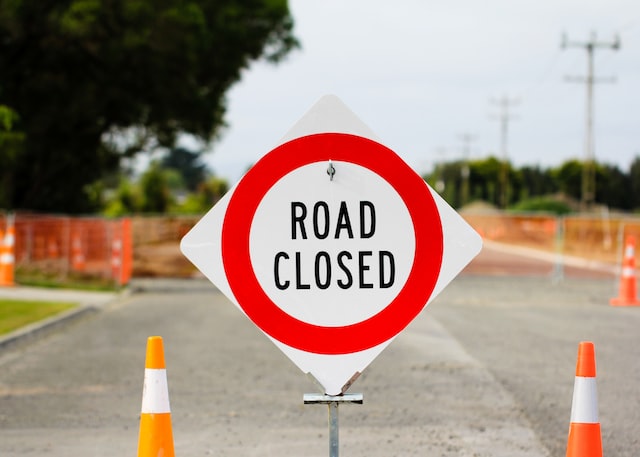15 August 2022
Gill Adams
In our last blog, Julia noted how municipalities in Norway worked to bridge research and practice. This got me musing on this notion of bridging across and the separation it suggests, even as it points to possibilities of connections.

As summer holidays are approaching, thinking about bridges took me off in my mind to the Scottish islands. Many were once only accessed by sea, often involving challenging navigation around low lying reefs and rocks that were likely to sink sailors without local knowledge or clear charts. Now some of these islands are connected by bridges and causeways as well as, or instead of, ferries. The ferries remain my favourite way of travelling, giving time to experience the journey, to pause and notice seals basking. That slowing down on the boat crossing acts as a preparation for island life and reminds me of the change in pace I experience between teaching and research in my university life. A different focus, a slowing down, time to play with ideas, to linger. How do teachers in schools manage this shift?
Alternatives to bridges between islands remain but may be less frequented. Walking on Eigg last year I came across a couple using sea kayaks to travel between islands. They had paddled over from Rùm, taking a meandering route dictated by tides and winds. Unhurried, they took time to make the traverse. In this next phase of our project we are exploring possibilities for supporting teachers to engage critically and confidently with literacy research, aiming to mull things over together, to open up spaces to make connections with research.
Connections may initially be forged across new terrain, linking spaces, groups and individuals. These links shift, some falter, others become more passable as they are travelled back and forth. This passage back and forth, making connections and bridging across, takes many forms. The teachers participating in our Research Mobilities in Primary Literacy Education project have already provided us with valuable glimpses into the way some of these connections and bridges are formed between literacy teaching and research evidence and how they endure. Connections are multiple and complex. These connections range widely – these few examples from teachers’ encounters with literacy research are selective but valuable in providing brief impressions of the complexity of teachers’ daily lives.
As we’ve talked with teachers, I’ve been struck by the variety of sometimes surprising routes that teachers reported research traveling to them, which suggests something about the inseparability of teachers’ personal and professional lives. Here is an example where one teacher talked about her research log:
‘There’s a link from my mum from The Guardian about how – oh no, it’s not The Guardian, it’s from theconversation.com about how grammar teaching should change’.
Does a personal connection, in this case the teacher’s mum sharing the link, influence engagement?
Another teacher told us how she approached a friend who worked in university teacher education for advice on how to enrich her classroom practice: ‘So she kind of encouraged me to doing things like joining some professional organisations, like the UKLA’. The new connections made subsequently ‘opened up just a set of encounters’ with research.
Time, a challenge mentioned in our May blog, isn’t the only barrier that teachers have mentioned as they share their encounters with research.

One teacher found their route to research thwarted as they struggled to gain access to articles protected by journal’s paywalls:
In terms of encounters, I think the biggest challenge is getting access to the research itself. […] You might find that you want to get access to an article or a journal and it’s like you feel like you’ve got to almost dance around to try and get access to it, whether it’s through – there was one recently that I was looking for and I ended up going through, having to find the researchers’ university web page and get through there to see if it was open access
Despite these difficulties, described by one teacher as ‘dancing around’, the primary teachers we have spoken to so far in the project are encountering research. As they create and navigate routes, they develop connections, using bridges like the Conversation article referred to above, research shared freely. Resources like this allow more direct access to research: a visit to the webpage prompts readers to sign up for newsletters, dropping research directly into their mailboxes; twitter followers are ‘fed’ constant updates. Often when I read this kind of research digest, I start to follow a research trail, perhaps to the original research, other work by the same author, or I might head off in a different direction, pursuing an idea raised in the article. But, like the teacher who received the link from her mum, it might be some time until I read the article, waiting perhaps for a provocation, a reason to return to it.
Of course, it isn’t sufficient simply to have well-signposted, accessible bridges – we need a rationale to make connections. The teachers we’ve spoken to articulated how they deliberately sought out literacy research, often in response to a need arising from reflection on learning and teaching.
‘I started doing other bits of research, which I really enjoyed, and looking into different things and I think that it is those things where you’re then looking at what doesn’t work in your classroom that then inspires you to then go and research into that’.
‘At our school, we have done disciplined inquiry in the past, so we have all come up with a question linked to our pupils and […] our kids are just rubbish at spelling, they just find it really hard, so I wanted to look at the memory and recall of the common exception words in KS2 and that was something that we did as a research project and the plan was, until COVID came, that we were going to present this and so I think that quite a lot of small scale research happens without us really knowing that we’re doing small scale research’
In these extracts, research is becoming part of teachers’ practice. They have decided the focus of their research together.
Participants have raised questions about planning, co-constructing and strengthening connections or bridges between research and practice. These questions, and the subsequent conversations, will help us explore how teachers’ critical engagement with research can flourish, a focus of our project.
If you are a primary teacher and are interested in getting involved in the project, do get in touch. We are holding more teacher focus groups in the autumn term and would love to hear from you. Please contact us at remple@shu.ac.uk or register through our website.